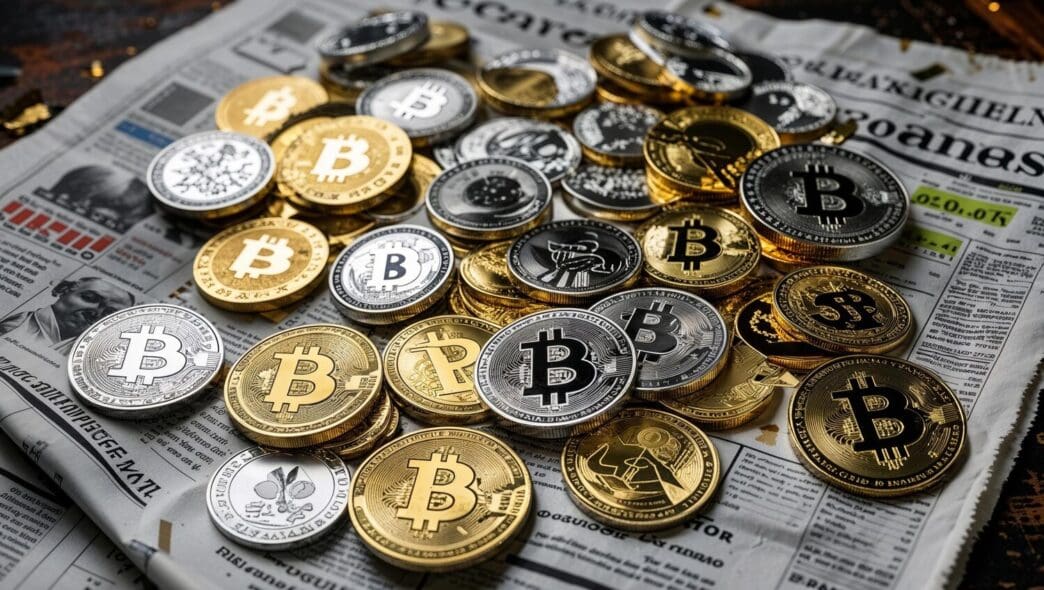Executive Summary
- El Salvador celebrates “Bitcoin Day” marking its 2021 adoption of Bitcoin as legal tender, despite significantly scaling back its crypto policies due to an IMF loan deal.
- As part of a $1.4 billion IMF agreement, El Salvador has ceased purchasing new Bitcoin with public funds and repealed the Bitcoin legal tender law.
- The nation maintains a strategic reserve of 6,313 BTC, valued at over $702 million, and continues public education programs on Bitcoin and AI despite policy adjustments.
The Story So Far
- El Salvador, having been the first nation to adopt Bitcoin as legal tender in 2021 and accumulating a significant strategic reserve, has since dramatically scaled back its ambitious crypto policies, including repealing the Bitcoin legal tender law and halting public fund purchases, primarily to comply with the conditions of a $1.4 billion loan agreement secured from the International Monetary Fund (IMF).
Why This Matters
- El Salvador’s significant rollback of its pioneering Bitcoin legal tender policy, driven by a $1.4 billion IMF loan agreement, underscores the powerful influence of international financial institutions on sovereign crypto adoption, potentially deterring other nations from similar ambitious ventures. This shift reveals the complex challenges and mixed outcomes of nation-state crypto integration, sparking debate within the crypto community about the practical benefits for average citizens versus institutional interests, despite the country’s continued commitment to Bitcoin education and its strategic reserve.
Who Thinks What?
- El Salvador’s Bitcoin Office celebrates “Bitcoin Day” and highlights the country’s strategic Bitcoin reserve, new banking laws for Bitcoin investment, and ongoing public education programs in Bitcoin and AI, signaling a continued commitment to digital asset education.
- The International Monetary Fund (IMF) mandated that El Salvador scale back its ambitious Bitcoin policies, including repealing the Bitcoin legal tender law and ceasing public fund purchases, as a condition for a $1.4 billion loan deal.
- Bitcoin advocates and non-governmental organizations criticize El Salvador’s revised Bitcoin policies, arguing they primarily benefit government agencies and international corporations rather than average citizens, and call for more comprehensive education initiatives to foster broader local adoption.
El Salvador’s Bitcoin Office is celebrating “Bitcoin Day,” marking the anniversary of the country’s pioneering move to adopt Bitcoin as legal tender in September 2021, even as the nation has significantly scaled back its ambitious crypto policies to comply with an International Monetary Fund (IMF) loan deal. The Central American nation, which was the first to embrace Bitcoin at a state level, now holds a strategic reserve of 6,313 BTC, valued at over $702 million, but its four-year experiment has yielded mixed results and divided the crypto community. Recent reports confirm El Salvador has ceased purchasing new Bitcoin with public funds and, as part of the IMF agreement, its legislature repealed the Bitcoin legal tender law.
Bitcoin Day Celebrations Amid Policy Shifts
On Sunday, the Bitcoin Office highlighted several achievements in an X post, including the country’s strategic Bitcoin reserve. This reserve currently holds 6,313 BTC, with a valuation exceeding $702 million. The office also pointed to a new banking law that permits Bitcoin investment banks to cater to sophisticated investors.
Further initiatives mentioned include the certification of 80,000 public servants in Bitcoin as of 2025. El Salvador also hosts several public education programs focused on Bitcoin and artificial intelligence. These efforts underscore the government’s continued commitment to digital asset education despite broader policy adjustments.
IMF Deal Prompts Policy Reversal
Despite being the first nation to adopt Bitcoin as legal tender and establish a strategic reserve, El Salvador has significantly curtailed its Bitcoin policies. This shift was a direct response to a $1.4 billion loan deal secured from the International Monetary Fund. The agreement was reached in December 2024, with the relevant legislation enacted in January.
As part of this agreement, El Salvador’s legislature repealed the Bitcoin legal tender law. The government also committed to not purchasing additional Bitcoin using public funds and to reduce support for its Chivo Bitcoin wallet, which had seen limited adoption among residents.
IMF Report Confirms Stalled Purchases
An IMF report published in July confirmed that El Salvador has not acquired any new Bitcoin since signing the $1.4 billion loan agreement in December 2024. This revelation sent “shockwaves” through the crypto community, according to the source article. The report included a letter of intent signed by El Salvador’s central bank president and minister of finance, verifying that the government’s Bitcoin balance has remained unchanged.
Criticism and Calls for Education
El Salvador’s revised Bitcoin policies have drawn criticism from some Bitcoin advocates and non-governmental organizations. Critics argue that the current Bitcoin policies primarily benefit government agencies and international corporations, rather than the average citizens of the Central American country. They emphasize the need for more comprehensive education initiatives to fully realize the benefits of a decentralized peer-to-peer electronic cash system.
These advocates believe that increased educational efforts are crucial for fostering broader adoption by the local population. Without such initiatives, they suggest, the full potential of Bitcoin for ordinary residents may not be achieved.
El Salvador’s four-year journey with Bitcoin has been a pioneering, yet complex, experiment marked by both initial enthusiasm and subsequent policy retractions. While the nation continues to celebrate its “Bitcoin Day” and promote educational programs, its actions to comply with IMF loan conditions have led to a significant scaling back of its original Bitcoin adoption strategy. This has resulted in mixed outcomes and a divided opinion within the global Bitcoin community regarding the efficacy of nation-state-level crypto integration.







